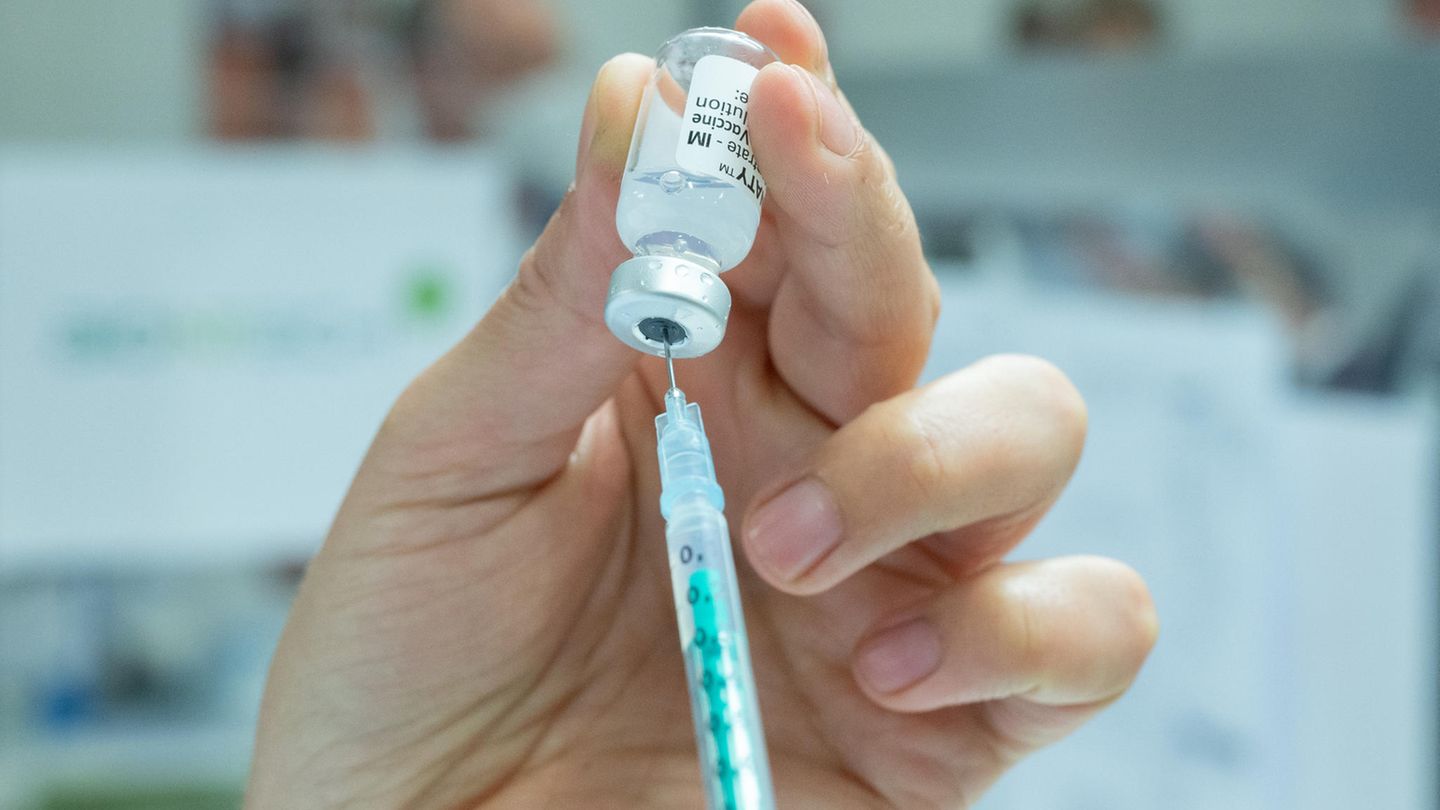Shortly after Christmas 2020, the first people in Germany were vaccinated against the corona virus. 146 million doses have now been administered, and around 70 percent of the population is fully immunized. Nevertheless, reports of side effects keep causing irritation. A balance sheet.
The vaccination campaign in Germany started exactly a year ago. She was accompanied with high hopes, as vaccination was considered a way out of the corona pandemic. In addition to numerous homemade inadequacies, reports about possible side effects of the corona vaccines caused uncertainty among the population. Descriptions of thrombosis in women and cardiac insufficiency in adolescents caused a stir. Because the number of people vaccinated was initially low, it was difficult to classify such reports at first. Millions of people are now immunized. Time to take stock.
The vaccinations not only prevented hospital admissions and deaths, but also made a large part of social life possible again, write US authors in the journal “Jama”. In order for people to trust the vaccines, it is important to clearly communicate “the great benefits and the low risks”, but also to monitor the safety of the vaccines, emphasize the experts from the CDC.
Germany has “from the beginning observed the reports of suspected vaccine side effects and complications with the highest priority, recognized very rare side effects at an early stage and introduced measures to minimize risk,” write the bosses of the Paul Ehrlich Institute (PEI) and the Federal Institute for Drugs and Medical Devices (BfArM), Klaus Cichutek and Karl Broich, in their balance sheet one year after the start of vaccinations.
According to the German Society for Immunology (DGfI), typical complaints after a vaccination are pain at the injection site, exhaustion and headache, muscle pain, chills and fever. “These reactions are an expression of the desired confrontation of the immune system with the vaccine and usually subside completely after a few days,” writes the Robert Koch Institute (RKI).
The PEI, which is responsible for the safety of vaccines, regularly publishes so-called safety reports on the Covid-19 vaccines. The youngest is from December 23 and relates to over 123 million vaccinations that were administered nationwide by the end of November. Up until then, 1.6 suspected cases per 1000 doses had been reported – this corresponds to 0.16 percent. If one only looks at the serious reactions, the reporting rate is 0.2 suspected cases per 1000 vaccine doses – 0.02 percent.
The Drugs Act defines as “serious” side effects that are fatal or life-threatening, require inpatient treatment or lead to permanent damage. According to the Infection Protection Act, serious side effects must be reported if they “go beyond the usual extent of a vaccination reaction”.
The latest PEI safety report lists the following as “very rare risks of Covid-19 vaccines”: allergies (anaphylactic reactions), inflammation of the heart muscle (myocarditis) and pericarditis (pericarditis), nerve inflammation Guillain-Barré syndrome and blood clots (thrombosis-with- Thrombocytopenia Syndrome, TTS).
What do we know so far about the vaccination risks?
In general, the PEI points out that “adverse reactions are reported in the temporal, but not necessarily causal, connection with a vaccination. Only studies can prove whether a reaction is actually a consequence of the vaccination. The PEI works with probabilities: It compares how an undesirable reaction is frequently reported, and this is related to how often this occurs statistically in a comparable unvaccinated population Institute in its latest safety report.
Inflammation of the heart muscle
“Myocarditis is a relevant side effect,” says the chairman of the board of the German Heart Foundation, Thomas Voigtländer. But that shouldn’t be a reason to decide against a Covid-19 vaccination: “Those who do not get vaccinated against Covid-19 run a much higher risk due to the dangers of a severe Covid-19 disease course.”
Myocarditis or pericarditis as vaccine reactions are very rare. “We’re talking about five cases per 100,000 vaccinations.” They were also usually mild and healed in almost all cases. The suspicious transaction reports mainly concerned the two mRNA vaccines and mostly male adolescents. According to the safety report, 15 deaths were named in connection with the Covid-19 vaccination. In three of these, the PEI considers a causal relationship to be possible, in the other cases the authority does not assume this “on the basis of the current data situation”.
Thrombosis
In the spring, reports of very rare thromboses caused a stir – thrombosis-with-thrombocytopenia syndrome (TTS). These blood clots often appear in unusual places, such as in the brain, and people also have low platelet counts. “This disease is a rare but potentially dangerous side effect of vector-based Sars-CoV-2 vaccines,” emphasizes the Society for Thrombosis and Hemostasis Research (GTH).
Most of the reports concerned the vector vaccines from Astrazeneca and Johnson & Johnson. Women were affected more often than the average. According to the safety report, 43 deaths from TTS were linked to the vaccinations. According to the PEI, 29 of them meet the special criteria for a TTS: They therefore relate to the preparations from Astrazeneca and Johnson & Johnson. Astrazeneca is no longer used in Germany, Johnson & Johnson plays a subordinate role.
Allergic reaction
Anaphylactic reactions occurred with all four approved vaccines, but they were also very rare. The reporting rate by the end of November was less than one case per 100,000 vaccine doses. It is slightly higher in women than in men and higher for the first dose than for the follow-up vaccinations.
Nerve damage
Guillain-Barré Syndrome (GBS) is a very rare autoimmune disease of the nervous system. According to the safety report, the reporting rate after vaccination with one of the two vector vaccines was lower than one report per 100,000 vaccine doses.
What about long-term consequences?
“There are two possibilities of what the term” long-term effects “means,” writes the PEI. “Something that takes a long time to happen or something that lasts for a long time.” The fact that very rare vaccination complications lasted over a long period is “the absolute exception,” writes the authority.
“Concerned citizens understand long-term effects – often also called long-term effects – as side effects that only occur after a delay of many months or years after the vaccination,” it continues. “These concerns are unjustified. We are not aware of such late-onset side effects of vaccines.”
And how many “vaccine deaths” are there now?
According to the latest safety report, a suspected vaccination death was reported times in 1919. But the PEI only “assessed the causal connection with the vaccination as possible or likely” in 78 individual cases. A comparison of the number of reported deaths with the statistically expected number of deaths in the same period “did not result in a risk signal for any of the four Covid-19 vaccines previously used in Germany,” writes the PEI.
Source From: Stern




